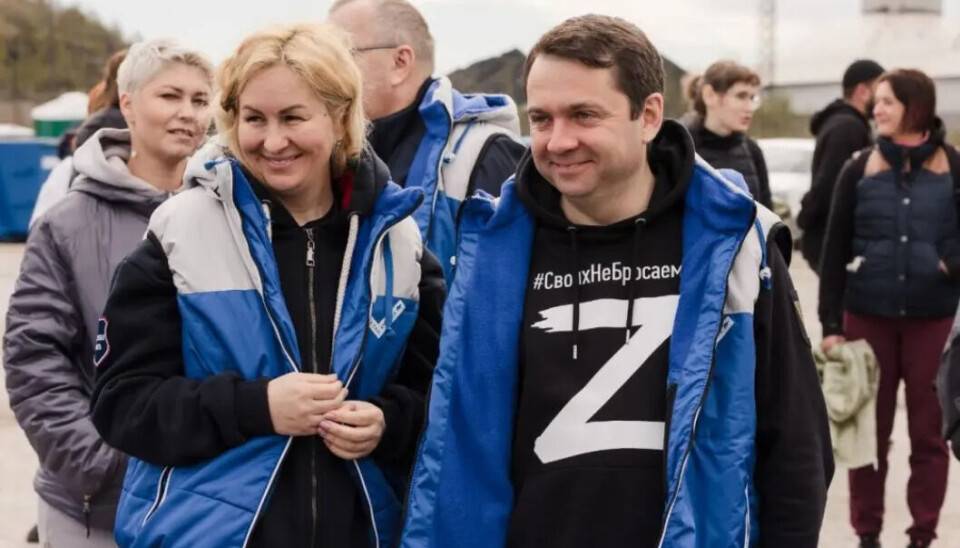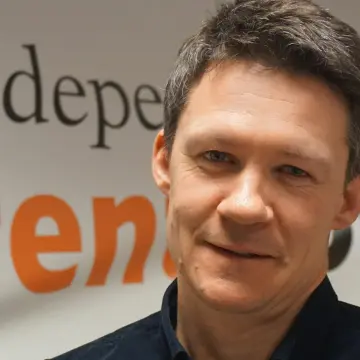
Banging on Putin's table
"We work, we fight, we defend the northern borders," Governor of Murmansk Andrei Chibis exclaimed and beat his hands against the dictator's table in a meeting in the Kremlin this week.
Four small thumps could be heard as Chibis slammed his hands on Putin's table in a bid to attract the Russian ruler's attention.
It was not an expression of resentment against the dictator. On the contrary. Andrei Chibis is a loyal regional servant that promotes to the full extent Putin's militarisation of society, clampdown on free voices, and war of aggression against Ukraine.

"We work, we fight, we defend the northern borders, and with your help, we ensure development," he emphasised enthusiastically in the meeting on November 24.
A video and transcript of the meeting was posted on the Kremlin's website and Telegram channel.
Putin is hardly accustomed to this kind of enthusiastic hand signals from a regional official. But the dictator did not seem disturbed by Chibis. On the contrary, he looked bored and uninterested.
As Andrei Chibis elaborated about his work to develop the Kola Peninsula and the shipping on the Northern Sea Route, Putin looked indifferently on a pamphlet provided by the governor.
Governor Chibis chairs a state commission on the Arctic and Northern Sea Route and tried to attract the attention of Putin to the importance of his work. The governor even described the Arctic as the basis for a possible new 'national idea' and compared it to the Soviet efforts to conquer space.
"Vladimir Vladimirovich, we have all come to the conclusion that, given the importance of the Arctic to our country in terms of geopolitical security, and given the resource base that the Arctic has, the development of the Arctic today is as important to our country as the development of space was to the Soviet Union," he said.
"And you know, in our opinion and that of the experts we work with, this could become a kind of national idea, given the scale and significance of this task," he added.
At the same time, Chibis admitted that there are certain 'serious challenges' in the region. According to the governor, shipments on the Northern Sea Route are likely to drop after 2035. The reason is delays in the development of natural resource projects in the region, he explained.

As reported by the Barents Observer, shipments on the Arctic route actually dropped in 2025.
Chibis also expressed concern about the demographic development in the region, but emphasised that the situation in Murmansk now looks better than before. According to the governor, there is currently migration growth in the Kola Peninsula and the rate of population decline has been halved over the past five years.
The statistics presented by Chibis are hardly trustworthy. According to data from the Russian Statistics (Rosstat), the Murmansk region has lost as much as 10 percent of its population during the four years of full-scale war.
But new population statistics will be hard to obtain. Murmansk Deputy Governor Svetlana Panfilova recently confirmed that Rosstat has closed all its data on population size and migration since May of this year. This reportedly applies not only to public data, but also to data used by government agencies.














